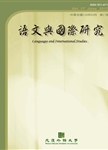版权所有:内蒙古大学图书馆 技术提供:维普资讯• 智图
内蒙古自治区呼和浩特市赛罕区大学西街235号 邮编: 010021

出 版 物:《语文与国际研究》
年 卷 期:2022年第27_S期
页 面:23-37页
主 题:augmented reality vocabulary learning meta-analysis AR technology-enhanced language learning
摘 要:Augmented Reality (AR) is a new technology compared with other technologies (e.g., virtual reality, game, corpus). Past research has indicated the facilitative effect of AR on vocabulary learning achievement. However, no investigation with substantial evidence of the effect size has been conducted to understand how AR can be applied to vocabulary learning. The present meta-analytic study examines the overall effect size and uncover the effect s moderating factors. Generated from 13 primary studies, implementing AR for vocabulary learning showed a sizeable overall effect (d = 0.84). The moderator analysis indicated that the practical application of AR was still limited in its scope for English vocabulary learning in a foreign language context. Elementary school students were found to benefit the most from AR programs. Teacher-directed and task-based approaches were essential for learning vocabulary in an AR environment. The present study also discusses AR vocabulary learning research gaps for future investigations.